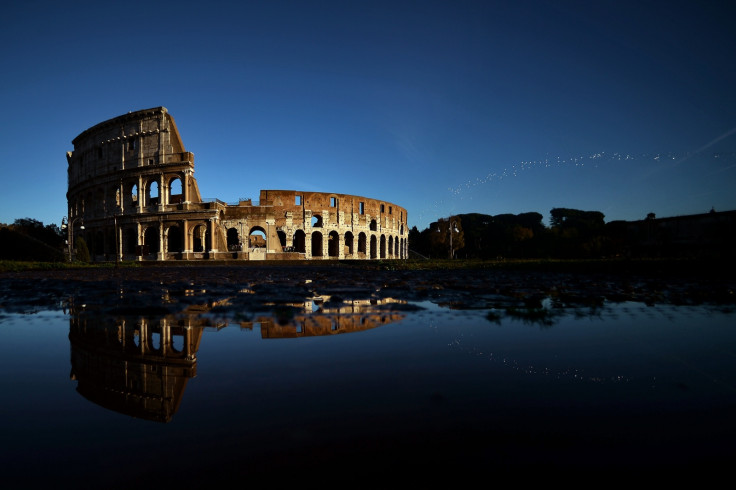Russian Tourist Fined £16,000 for Vandalising The Colosseum of Rome
Tourist caused 'significant damage' by carving a big letter 'K' on the Colosseum

A tourist caused "significant damage" by carving a big letter "K" on the Colosseum, one of the world's most popular visitor attractions.
The 42-year-old was fined £16,000 for hacking out a letter K on one of the walls in the largest amphitheatre in the world. He was also given a four-year suspended sentence.
Italian authorities said the Russian used a sharp stone to etch out the large letter which was 25cm tall. He was caught in the act by a member of staff, according to a Sky News report.
Mariarosaria Barbera, head of the administration of the Colosseum said the man had "caused significant damage" and had "ruined the covering part of the amphitheatre".
Union leaders, citing recent acts of vandalism, have complained about the lack of personnel to properly monitor Rome's archaeological treasures — with increasing numbers of visitors seeking to leave their personal mark, causing much damage.
This is the fifth incidence of vandalism by foreign tourists this year, including an Australian man and his son who were scrawling their names on the 9<sup>th century walls. His 12-year-old son was reported to the public prosecutor of the juvenile court for "contaminating a property of historical interest". In 2011, police caught an American tourist climbing up the walls of the ancient monument, trying to chip off pieces of marble.
Italy takes protection of its monuments seriously and hands out large fines for vandalism. The Roman daily Il Messaggero said authorities would increase the number of surveillance cameras and step up visual and audio warnings against damaging the ancient ruin.
Long-delayed repairs to the 2,000-year-old monument, once used for bloody gladiatorial contests as well as fights with lions, leopards and bears, began in September. The restoration which will cost around £21m and is being funded by Italian billionaire Diego Della Valle. The refurbishment is expected to finish in 2016.
The Colosseum, built in 70AD could hold between 50,000 and 80,000 spectators and was used for public spectacles such as mock sea battles, animal hunts, executions, re-enactments of famous battles, and dramas based on Classical mythology.
© Copyright IBTimes 2025. All rights reserved.




















